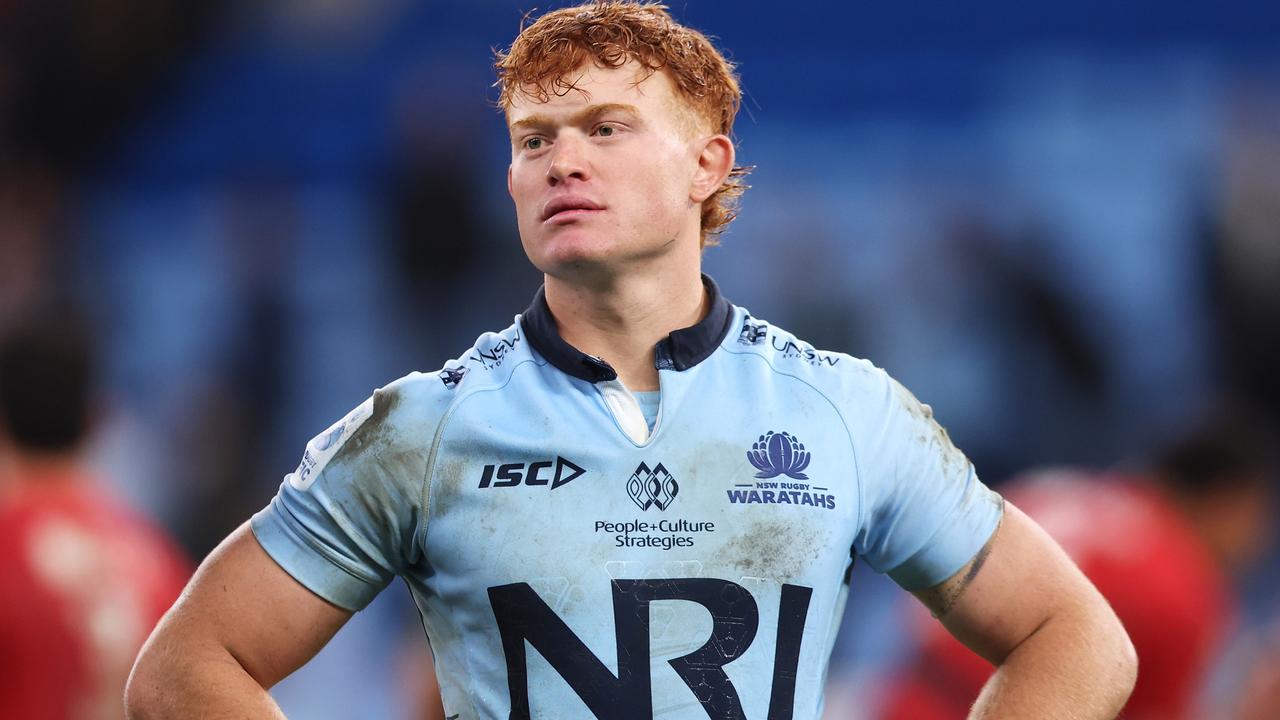Foreign-born stars to put eligibility row to bed ahead of Lions tour
Irish and Scottish players, born in New Zealand and Australia respectively, want to put eligibility row to bed, but that does not sit comfortably with one of the greats to have worn the Lions jersey.

Rugby
Don't miss out on the headlines from Rugby. Followed categories will be added to My News.
SIONE TUIPULOTU and James Lowe. An Australian accent and a Kiwi accent. One has a Scottish grandmother, the other has Irish citizenship. Both are now British & Irish Lions, a fact that does not sit comfortably with one of the greats to have worn the jersey.
Willie John McBride, who played 70 games for the Lions over five tours, said recently that he was bothered by the number of players in the squad not born in Britain and Ireland. “That’s how things have changed over the past 60 years,” he said. “In my day, the team consisted only of native players.”
The world has certainly changed, with natural migration, multinational families and the globalisation of professional rugby, but it has never been quite as straightforward as McBride thinks.
In 1904, Pat McEvedy and Arthur O’Brien were among five Guy’s Hospital players picked for the Lions tour, having hailed originally from New Zealand. Tug Wilson, who was from South Africa, toured with the Lions in 1955. As did Mike Catt in 1997 and 2001.
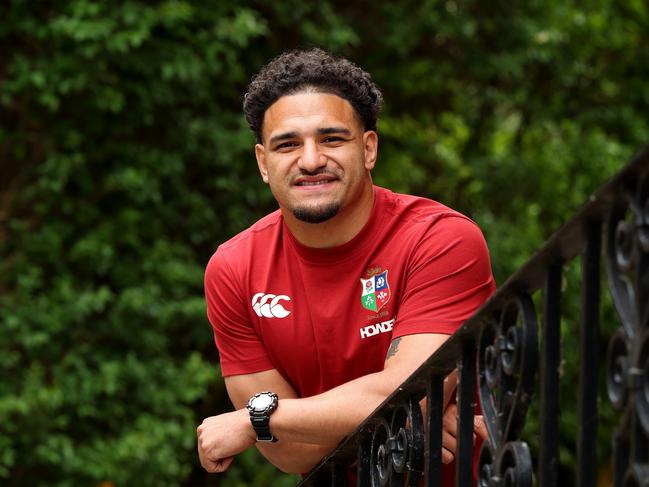
Andy Farrell, the Lions coach for this year’s tour to Australia, has selected five players born abroad who qualified for their respective Test nations on residency grounds after being identified as project players.
Lowe, Jamison Gibson-Park and Bundee Aki are Ireland’s Kiwis. Duhan van der Merwe and Pierre Schoeman are Scotland’s Junior Springboks. All were fortunate not to have been captured for their native countries by the ever-evolving regulations. Van der Merwe is going on his second tour, while Lowe will emulate his countryman Riki Flutey in playing for and against the Lions, having represented the New Zealand Maori in 2017.
The Aussie pair in the Lions squad are different. Tuipulotu, the Scotland captain, and Mack Hansen, whose mother hails from County Cork in Ireland, qualify through family connections, rather than residency.
Under the letter of the regulations, Hansen’s connection to Ireland is as strong as Marcus Smith’s connection to England. And nobody questions whether Smith, who was born in Manila to a Philippine mother and an English father, should be playing for England or the Lions.
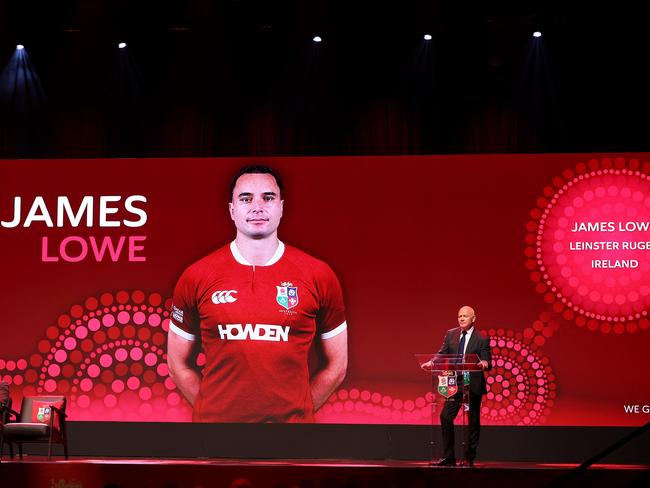
The difference, of course, lies not in the rule book but in a feeling. Did they grow up supporting the Lions? Do they feel like Lions? Are they considered homegrown? Smith was raised in England. Hansen was a schoolboy star in Canberra. His alma mater, Darmalan College, awards the Mack Hansen medal to the best back of the year.
Tuipulotu has always felt conscious of having to justify his commitment to the Scotland jersey. Sentiment began to shift last November when his grandmother, Jaqueline Thomson, flew from Melbourne to watch him play for Scotland against Australia. “It allowed the public to put a face to the story, listen to how much it meant to her,” he said. “I think that gave eyes to the public that my story is authentic.”
But Tuipulotu was desperate to earn Lions selection. The 28-year-old centre saw it as some sort of validation. When he suffered a pectoral muscle injury in January, that would rule him out of action until last weekend, he feared it was all over. Farrell would have to pick him on reputation, not form.
“I wanted to be in control of whether I got selected or not,” Tuipulotu said. “I believed I was doing that. When you get injury, the chance to influence the situation is taken away from you. I couldn’t help but doubt the situation. I just felt it was over for me. I put so much on myself that I really wanted to be a Lion because I know how much it means to people over here, and I had gone all in with the stuff with Scotland. I just felt like, ‘What better way to prove my allegiance or whatever to Scotland, and go all in and try and make the Lions’, and that’s why it meant so much to me.
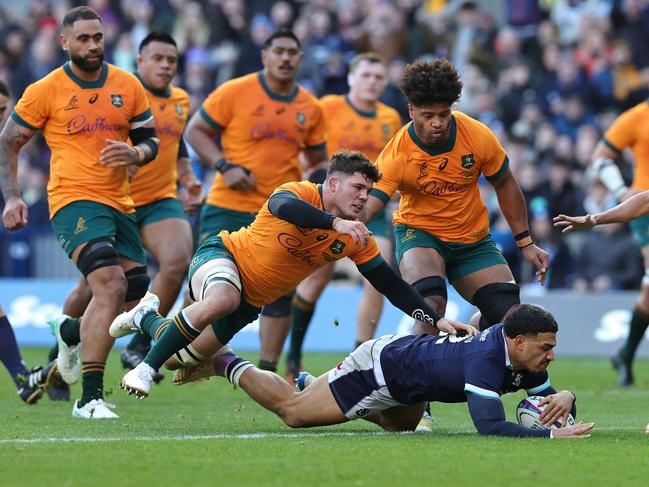
“It was keeping me up at night. Genuinely, and I’m not embarrassed to say that. I was emotional. I’d been playing the best rugby of my life up until that point and you feel like it’s all gone.”
Tuipulotu is proud of his multinational heritage. His father is from Tonga, his mother from Australia. They will all be Lions supporters this summer. He played in Japan before moving to Scotland. As a man of faith, he believes it was meant to be. “In those early days, just to be completely transparent, you have that feeling of, ‘Am I part of this?’ ” he said. “You want to prove yourself, and the best way to do that is on the field and show your commitment that way.
“I’ve been nothing but embraced by the Scottish public since I’ve been playing for Scotland. There are always going to be a couple of people [who don’t like it] like there are for some of the Irish boys.
“But I take that in my stride because I don’t blame those people either. I didn’t grow up dreaming of playing for Scotland or the Lions. That’s the truth. But this is where my path has led me.
“I’m all in for this Lions team - for Scotland, for Glasgow, for everything - and I genuinely believe this is where I’m supposed to be anyway. I’ve been led here for a reason.”
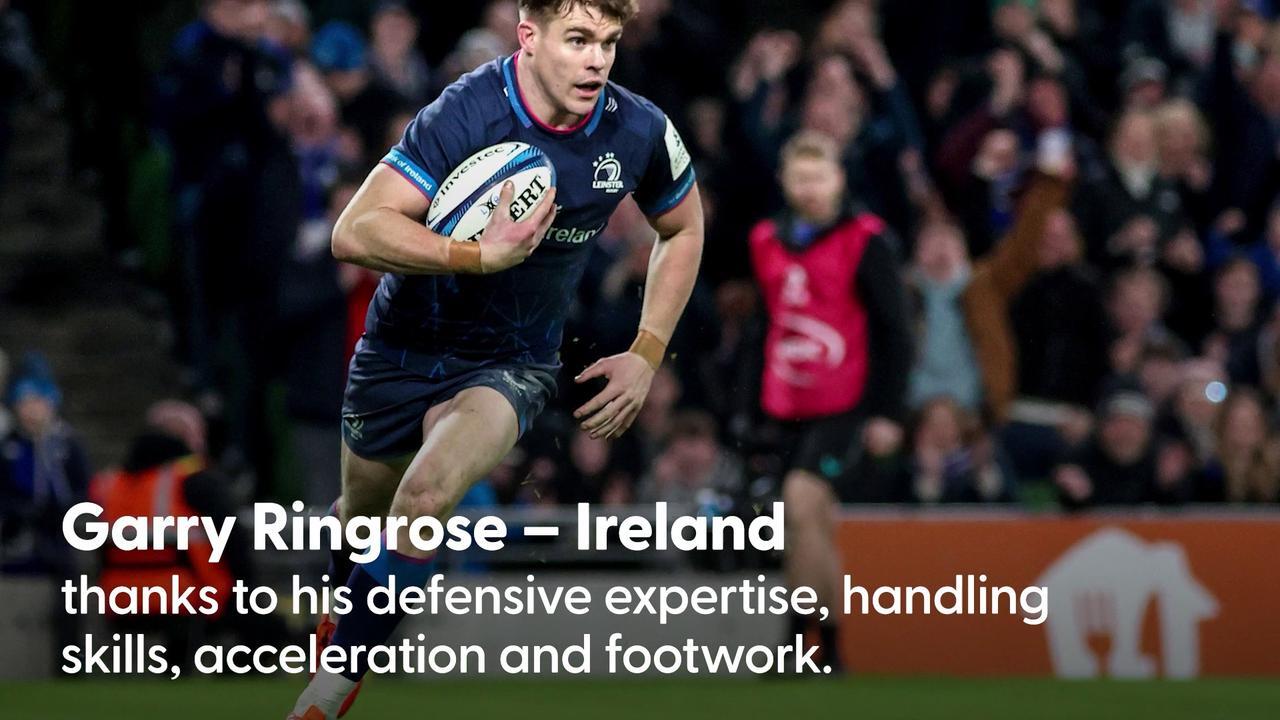
Lowe has followed a different path from Tuipulotu, qualifying for Ireland under the old three-year residency rule (now five). There is much more cynicism surrounding the motivations of residency players. They can be seen as guns for hire, mercenaries, diluting what international rugby should be about.
Lowe’s story is a consequence of the globalisation of professional rugby. But he said that nobody should doubt his commitment to Ireland and therefore the Lions. He has no plans to leave Ireland once his rugby is over, as CJ Stander did. Lowe is of the view that it is not about where you start in life, but where you finish.
“It’s no fault of your own being from New Zealand,” Lowe, 32, said. “Obviously when you don’t have the blood running through your veins, there is a little bit of that. When I was first selected for Ireland, all the people come out of the woodwork saying, ‘How is this person representing Ireland?’
“But the rules are there. We’ve all done our time. I am fully embedded in the culture of Ireland. Sione’s captained Scotland. You don’t have to question where his allegiance lies.
“I’ve been fortunate to represent Ireland 40-odd times and I still pinch myself every time I get to wear that jersey. To be recognised and rewarded and be picked is surreal. My old boy back in Nelson, where I grew up, walks around in Leinster, Ireland and now Lions kit. Everyone thinks, ‘Who is this crazy old boy in all this kit?’ He’s just a proud boy now.
“It means so, so much. The boys will still slag me for my accent, but we are so well connected in so many ways. Everyone’s got a different story; my story just didn’t start in Ireland. But I can see it ending in Ireland.”
More Coverage
Originally published as Foreign-born stars to put eligibility row to bed ahead of Lions tour



